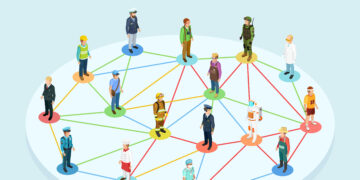Public curiosity often collides with personal boundaries, especially when a figure has spent decades on television and in print. Searches for “judge napolitano wife” reflect that tension. People want a full picture of Andrew Napolitano’s life—career, views, and relationships—yet much of that private sphere is either unreported or intentionally kept out of public view. This article brings together what is verifiable from public records and reputable reporting, adds context to past coverage, and explains why respectful limits matter when discussing family and personal relationships.
A careful introduction
Andrew P. Napolitano—known widely as Judge Napolitano—is an American legal commentator, former New Jersey Superior Court judge, author, and longtime media personality. Over years of commentary, he has written on constitutional law and civil liberties and appeared on cable news and radio. When readers search for “judge napolitano wife,” they are often looking for a biographical snapshot that includes family details. It’s important to be clear about what is publicly documented and what is not, and to distinguish verified facts from speculation. That makes the conversation more honest and more useful.
Public versus private
There is a bright line between public record and private life. Public record includes roles held on the bench, published books, TV and radio work, speaking engagements, and statements made by Judge Napolitano himself in interviews or writings. Private life encompasses intimate relationships, family members who are not public figures, and personal matters that have not been disclosed by him or reported by credible outlets. On topics such as “judge napolitano wife,” “judge napolitano son,” and “judge napolitano kids,” reliable sources either provide minimal detail or none at all, which typically indicates those aspects are private or unconfirmed. Respecting that boundary is not just ethical; it also keeps the biographical picture focused on what can be known with confidence.
Family context
Questions about “judge napolitano family” often arise alongside career topics. Available public information about his immediate family relationships is limited, and references in reputable reporting tend to focus on his upbringing, education, and professional life rather than domestic details. Where family is mentioned in profiles, it is typically at a high level without specifics about a spouse, children, or domestic partners. In other words, on “judge napolitano wife,” there is no authoritative, detailed public account comparable to his well-documented professional record. That absence suggests either privacy by choice or a lack of publicly confirmed information. It’s prudent to avoid filling in gaps with conjecture.
Past reports in context
Over time, several news cycles have shaped public perception of Judge Napolitano’s career, including both accolades and controversies. When summarizing those moments, the most responsible approach is to rely on mainstream, well-sourced reporting and primary statements. Career highlights include his tenure on the New Jersey Superior Court, his transition to legal analysis in media, and his steady output as an author focused on constitutional issues such as the Bill of Rights, executive power, surveillance, and due process. Controversies have also appeared in the record, and when they do, outcomes and responses matter for context: what the claims were, what actions followed, and what changes, if any, resulted in his professional path. This framework—facts, outcomes, and current status—helps readers understand the “what happened” without drifting into rumor.
Quick facts
People often want straightforward answers to common biographical questions. While exact numbers can change with time, some anchors are consistent across reliable sources:
- How old is Napolitano? Publicly available biographical data places his birth in the mid-20th century, making him a senior figure in American legal commentary today. If you need an exact number for a given year, calculate from the most widely reported birthdate.
- Judge Napolitano height. Height is a detail that is sometimes reported in profiles but not always confirmed by primary sources. Where not clearly documented, it’s better to avoid precision than to assert an unverified figure.
- Has Judge Napolitano written any books? Yes. He has authored numerous books on constitutional law, liberty, and governmental power. Themes repeat across titles: the limits of state authority, protections in the Constitution, and civil liberties in modern contexts.
- What TV show was Judge Napolitano on? He was a frequent presence on cable news, offering legal analysis, hosting and guest-hosting programs, and contributing commentary across segments focused on law and politics.
These quick facts should be grounded in the strongest available documentation, such as publisher records for books and network announcements for TV roles.
Books and ideas
Judge Napolitano’s writing career is extensive. His books, essays, and columns often dwell on civil liberties, the separation of powers, surveillance, and the balance between individual rights and governmental interests. Several of his works challenge readers to consider the constitutional basis for everyday policies, asking whether convenience or security has edged out foundational protections. Across the body of work, readers will see a consistent emphasis on natural rights, limited government, and the primacy of the Constitution’s text and spirit. For those trying to understand him beyond a headline, his books are the most direct window into his thinking.
Career arc
His professional arc can be understood in three phases. First, the legal practitioner and judge: education, early practice, and service on the bench. Second, the commentator and educator: the move into media, where the ability to translate complex legal issues for a general audience became central, alongside writing and public speaking. Third, the current period: contributions through interviews, opinion essays, podcasts, and appearances that focus on constitutional analysis in the context of today’s politics and court decisions. Each phase builds on the prior one, and together they explain why his perspectives have long resonated across a broad audience interested in law and liberty.
What happened to Judge Napolitano
When readers ask “what happened to Judge Napolitano,” they may be referring to shifts in his media visibility or to specific controversies reported in the press. Publicly reported developments have included changes to on-air roles, responses to internal network matters, and subsequent activities in writing and commentary. The right way to frame this is chronologically and factually: note what reputable outlets reported, how the relevant organizations responded, whether roles changed, and what Judge Napolitano did next. This approach provides clarity without speculation and allows readers to see a through-line from past events to present work.
Latest news
“Judge Napolitano latest news” typically points to new interviews, essays, or commentaries on high-profile legal issues—Supreme Court decisions, constitutional disputes, legislative controversies, and major criminal cases with constitutional implications. His current appearances may be on broadcast segments, streaming shows, radio, or podcasts, and he may contribute written analysis to outlets that publish legal commentary. Because the news cycle is dynamic, it’s smart to corroborate recency by checking dates on any cited appearance or article and ensuring it aligns with current events.
What he is doing now
“What is Judge Napolitano doing now” is best answered by looking at his ongoing public output. He continues to write and speak about constitutional law and civil liberties, often analyzing current cases or policy debates. He appears in interviews and may host or guest-host conversations that explore legal frameworks around current events. He also engages with audiences through lectures, conference panels, or virtual forums focused on constitutional interpretation, due process, and the boundaries of state power. These activities fit the longstanding pattern of his career: interpreting the Constitution for a broad audience and arguing for robust protections of individual rights.
YouTube presence
“What happened to Judge Napolitano on YouTube” can mean a couple of things. Sometimes it refers to shifts in where his commentary appears—whether on a personal channel, on the channel of a media outlet, or as a guest on others’ platforms. At other times, it’s shorthand for a particular clip, interview, or episode that circulated widely. Because channel ownership and distribution can change, the practical answer is that his video presence may be dispersed: some content posted by networks, some hosted by independent programs, and some compiled by third-party channels. The key is to verify the original context of any widely shared clip before drawing conclusions.
Net worth caveat
“Andrew Napolitano net worth” is a common search, but estimates circulating online are often rough, speculative, or drawn from secondary aggregators rather than audited disclosures. Net worth figures can fluctuate due to book sales, speaking engagements, media contracts, investments, and personal financial decisions. Without primary financial statements, any precise number should be treated as an estimate with a wide margin of error. The responsible stance is to acknowledge that his years of work as a judge, author, and commentator form the basis of his earnings while avoiding unverified dollar amounts.

On spouse, son, and kids
Searches for “judge napolitano wife,” “judge napolitano son,” and “judge napolitano kids” are common, but credible, detailed public information on these topics is sparse. Some public figures keep their family lives entirely private; others clarify specific details in interviews or biographies. In Judge Napolitano’s case, mainstream profiles and bibliographies focus on his professional life. Where personal relationships are not documented by reliable sources, the honest answer is that the record does not provide an authoritative public narrative. Responsible coverage means acknowledging that absence and resisting the urge to fill gaps with unverified claims.
Why privacy matters
Privacy is not an evasion; it is a principle. Public figures have chosen to share their ideas and work, not necessarily every dimension of their personal lives. Focusing on verifiable accomplishments and public statements respects both the person and the reader. It ensures that conversation remains grounded in fact and shields family members who never sought public attention. When readers look for “judge napolitano wife,” the fair outcome is to present what is known, explain the limits of the record, and keep the emphasis on achievements and current contributions.
How to read sources
When learning about public figures, a few habits protect accuracy. First, prefer primary sources: the person’s own books, speeches, interviews, and official statements. Second, consult reputable outlets with clear editorial standards when reviewing news reports, especially on sensitive topics. Third, avoid amplifying claims that lack attribution, and watch for outdated information being recycled as current. Fourth, distinguish commentary from reporting; opinion pieces frame arguments, while news stories aim to document facts. Finally, check dates and context, especially for viral clips or quotes. These practices help separate signal from noise.
A note on biography gaps
It’s normal for biographies to have uneven detail: precise on career milestones and publications, sparse on family unless the subject chooses otherwise. For Judge Napolitano, the richest records are his books, columns, and long-form interviews where he explains his constitutional philosophy. Readers who want to understand his influence will learn more from that body of work than from any single personal detail. In that sense, the most complete portrait of the person is still the public record of his ideas.
Short answers to common questions
How old is Napolitano?
He is a senior legal commentator whose birth year places him firmly in the baby-boom generation; reference the widely reported birthdate for exact age in a given year.
Has Judge Napolitano written any books?
Yes. He has written multiple books on the Constitution, civil liberties, executive power, and limits of government, reflecting a consistent emphasis on natural rights and due process.
What TV show was Judge Napolitano on?
He was a frequent on-air legal analyst and host on cable news, appearing across programs focused on law and public policy, and contributing to panel discussions and special coverage.
Judge Napolitano son and kids?
There is no detailed, authoritative public record confirming children or providing family specifics. Where the record is silent, it is best to say so rather than speculate.
Andrew Napolitano net worth?
Figures online are estimates and should be treated cautiously. His income traces to years as a judge, author, commentator, and speaker.
Judge Napolitano family?
Public sources emphasize professional milestones; family details remain largely private or unreported by reputable outlets.
Judge Napolitano height?
This is not consistently documented by primary sources; absent confirmation, precise figures should be avoided.
Judge Napolitano latest news?
Look for recent interviews, essays, and commentaries on ongoing legal issues; verify dates and platforms to ensure recency.
What is Judge Napolitano doing now?
He continues to write, speak, and analyze constitutional issues in media appearances and public forums.
What happened to Judge Napolitano on YouTube?
His appearances may be distributed across multiple channels—network uploads, independent shows, and guest spots—so context and original source matter when evaluating clips.
The bigger picture
A personality is not a single headline. Judge Napolitano’s public life is anchored by his jurisprudential views and the way he communicates them to a general audience. The long arc of his work—clarifying constitutional text, arguing for limits on government power, and emphasizing due process—explains why he remains a reference point in debates about law and liberty. That arc is the most reliable lens through which to understand him.
Closing thoughts
When you search for “judge napolitano wife,” you’re touching the boundary between public interest and personal privacy. The most respectful and accurate way to answer is to say what’s known, explain what isn’t, and keep the focus on verified contributions. Judge Napolitano’s career—on the bench, on the air, and on the page—stands on its own. The public record of ideas is rich; the private record of family is limited by design. Recognizing that difference helps keep the conversation fair, human, and grounded in facts.
FAQs
Is there confirmed information about Judge Napolitano’s wife?
Detailed, authoritative public information about a spouse is not available in reliable sources. It’s appropriate to acknowledge that and avoid speculation.
Does Judge Napolitano have children?
Reputable public records do not provide confirmed details about children. Where sources are silent, the responsible answer is that it’s not documented.
What is Judge Napolitano best known for today?
For his constitutional analysis as an author and legal commentator, focusing on civil liberties, separation of powers, and due process.
Has he written many books?
Yes. He has authored multiple books about the Constitution and individual rights, returning to themes of limited government and natural rights.
Where can I find his most recent work?
Look for recent interviews, essays, and media appearances discussing current legal issues; always check dates to ensure you’re seeing the latest.
Reference
This article relies on publicly available, reputable sources: published books and essays by Andrew Napolitano, mainstream reporting on his media roles and career developments, and standard biographical records used by established outlets. It avoids unverified personal claims and keeps the focus on confirmed information about his professional life.













































